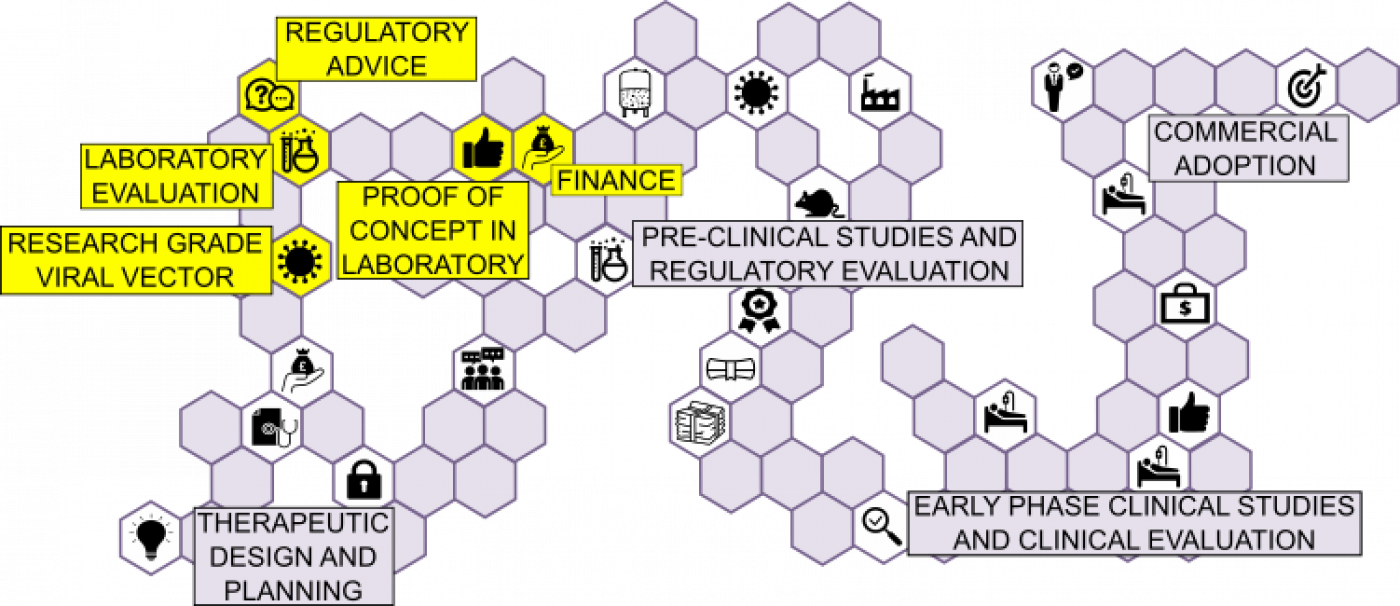Highlighting requirements of the "Laboratory Evaluation" stage in order for successful cell and gene therapy translation.

 RESEARCH GRADE VIRAL VECTOR:
RESEARCH GRADE VIRAL VECTOR:
In order to develop a research grade cell and gene therapy vector, there are a number of factors to consider in order to ensure the vector is stable, sufficient and optimised for preclinical evaluation.
These considerations should include:
- Synthesise DNA – check sequence integrity
- Vector design – composition including; capsid choice, transgene & promoters for optimal expression
- Synthesis research grade viral vector – sufficient (titre/volume) for preclinical evaluation, QC/QA
- Expression stability of gene modification in host cell
- Transduction efficiency
 LABORATORY EVALUATION:
LABORATORY EVALUATION:

Once the research grade product has been developed, it is important to ensure that it matches the Target Product Profile (TPP) and meets all essential requirements.
These include:
- For cell therapy vectors: Effective tumour cell killing in vitro? Effective cell therapy eradication via suicide gene activation in vitro?
- Does the DNA produce functional protein – assessed in transient transfection assays?
- ‘In-house’ development and target validation
- Consider which Proof-of-Concept (PoC) animal models are appropriate for target and modality
UCL Support:
The Translational Research Group (TRG) within the Translational Research Office, have extensive knowledge of the cell and gene therapy translational pathway and are experienced on working on projects in this field. They are best placed to advise on considerations for research grade viral vectors and laboratory evaluation.
 REGULATORY ADVICE:
REGULATORY ADVICE:
Seek regulatory advice to ensure that your project is compliant with regulatory guidelines and requirements put in place by authorities including the MHRA, EMA and FDA. It is essential to meet these requirements in order for successful translation.
UCL Support:
Early engagement with the Translational Research Group (TRG) and Joint Research Office (JRO) is essential to facilitate timely foreword planning for evaluations to satisfy the regulatory authorities.
 Close
Close

